 Chinese Vocabulary: Food & Drinks
Chinese Vocabulary: Food & Drinks
Start learning Chinese words related to food and drinks. Improve your language skills and enrich your vocabulary with this collection.
- 1
- 2

米饭
Rice is a staple food in Chinese culture and is often eaten together with other dishes.
Example sentences with 米饭 →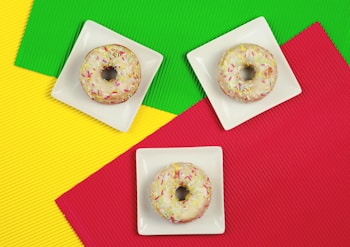
糖
The Chinese word for 'Sugar' is '糖'. It is used in the same context as in English, to refer to the sweet, crystalline substance that comes from various plants, mainly sugar cane and sugar beet, which is used to sweeten food and drink. Examples of use could be '他喜欢在咖啡里加糖' (He likes to add sugar to his coffee).
Example sentences with 糖 →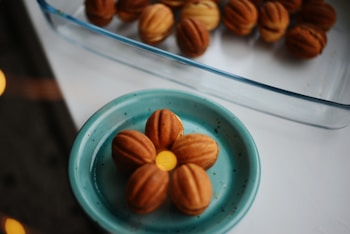
糖果
In Chinese '糖果' refers to any type of sweets, candy or confectionery. Similar to English, it's a generic term that can reference any type of sweet treat. 糖果 can be used in a variety of contexts such as asking for sweets in a shop, describing a favorite food, or referring to the sweetness of a dessert.
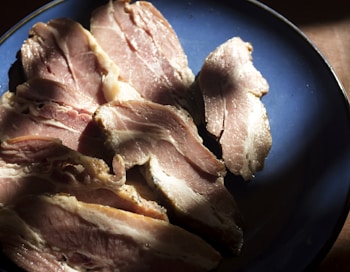
肉
This term refers to meat in general, which includes options like pork, beef, chicken, etc.
Example sentences with 肉 →
舌头
The Chinese word for 'tongue' is '舌头' (shétóu). It can be used in a variety of contexts, just like in English, to refer to the muscular organ in the mouth, or metaphorically, such as in the expression 'mother tongue'. However, when translated directly, 'tongue' may not always mean '舌头'. The context always matters in Chinese.
Example sentences with 舌头 →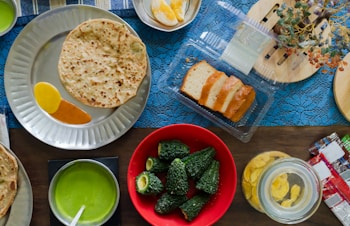
苦
The Chinese word for 'bitter' is '苦'. It is most often used to describe a taste, similar to the English usage. However, in a more figurative sense, it can also refer to a bitter experience or hardship, much like 'bitter' can in English. It is used in various contexts ranging from describing food, medicine, or emotions in everyday conversation.
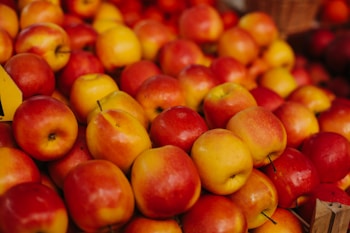
苹果
The Chinese word for apple is '苹果' (píngguǒ). It is commonly used in casual and formal speech and text. It can also appear in compound words for different types of apples or apple related items, just like it is used in English.

茶
In Chinese, the word for 'tea' is '茶' and it is a common term. It can be used to refer to both the specific drink made from steeping tea leaves in water, but also more generally to refer to any warm, nourishing liquid consumed for pleasure and relaxation. Tea drinking is an important part of traditional Chinese culture.
Example sentences with 茶 →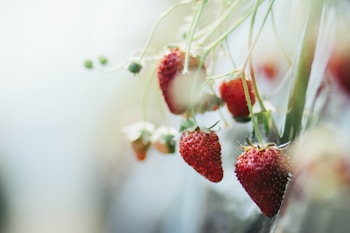
草莓
The Chinese word for strawberry is '草莓', pronounced as 'cǎo méi'. It refers to the same fruit as in English - the small, red fruit with a sweet taste. It can be used in various contexts, just like in English, such as in describing the fruit itself, in food items like strawberry cake (草莓蛋糕), or in colors like strawberry red (草莓红).

菠萝
In Chinese, 'pineapple' is translated as '菠萝' (bō luó). It is used in the same way as in English, referring to the sweet tropical fruit. It is used in various contexts, such as food, recipes, and also colloquially in certain phrases and sayings.

葡萄
The Chinese word for grape is '葡萄' (pú tao). In China, grapes are a popular fruit and you might often hear this word in local markets, supermarkets or fruit stands. Just like in English, '葡萄' can be used to signify a single grape or grapes in general. This word can also be combined with other words to form terms such as '葡萄酒' (pú tao jiǔ), which is wine.
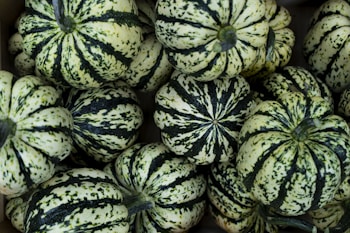
蔬菜
This term refers to vegetables in general. Chinese cuisine includes a wide range of vegetables in their dishes.
Example sentences with 蔬菜 →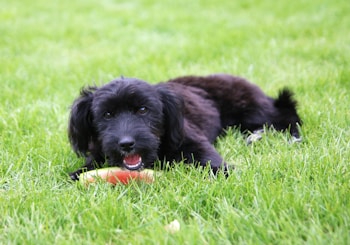
西瓜
The Chinese word for watermelon is 西瓜 (xī guā). It is used to refer to the sweet, juicy fruit that is particularly popular in summer. In Chinese culture, it is often eaten as a refreshing snack or dessert, and it can also be found in various foods and beverages, such as fruit salads and smoothies.

订单
In Chinese, '订单' is mainly used for referring to orders in the context of shopping or consuming services. It can be used to indicate orders made for goods in a store or orders placed in a restaurant. Comparable to how 'order' is used in English, '订单' is employed in similar contexts.

金
The Chinese character '金' represents 'gold'. It is often used in context where it pertains to wealth, color, or the precious metal. It is also used in compound words to denote something valuable or related to metal.
Example sentences with 金 →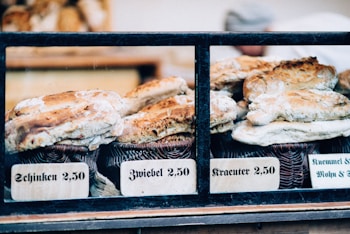
面包
Although not a staple food in China, bread is gradually being enjoyed by more people, especially for breakfast.
Example sentences with 面包 →
食堂
Cafeteria in Chinese is translated as '食堂' (shítáng). The word is used to describe places where food is served, similar to how we use 'cafeteria' in English. '食堂' can be used in different contexts such as school, office, or public cafeterias.
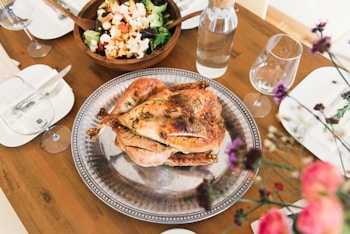
食物
This is a general term in Chinese meaning food, referring to anything consumable by humans or animals.
Example sentences with 食物 →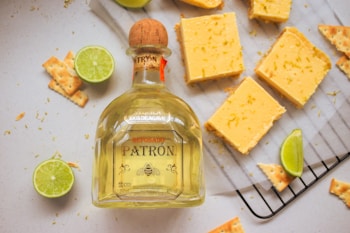
食谱
The Chinese word '食谱' (shípǔ) is used to refer to a list of ingredients and the steps needed for cooking a particular dish or food. Similar to 'recipe' in English, it can be used in various contexts relating to food preparation and cooking. It is often used in conversations, cooking shows, cookbooks, and any discussion involving the preparation of food.
Example sentences with 食谱 →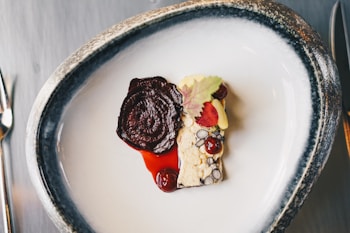
香槟
The Chinese word '香槟' is used exactly like the English word 'champagne'. It can refer to the sparkling wine itself, or situations/events where such a wine is being enjoyed.
Example sentences with 香槟 →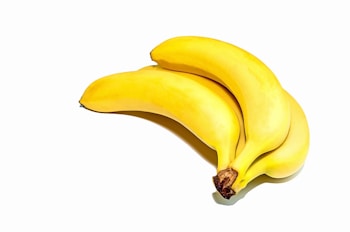
香蕉
The Chinese word for banana is 香蕉. It is common in both casual conversation and written language. You can use this word when talking about fruits, food ingredients, or when you refer to the color that matches the fruit's peel.

鱼
Fish is a commonly cooked food in China, enjoyed in various forms like steamed, fried or in soup.
Example sentences with 鱼 →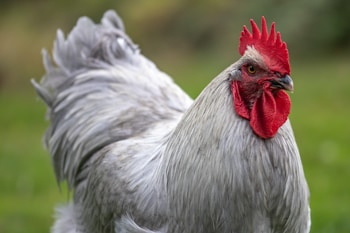
鸡
In Chinese, '鸡' refers to the animal chicken, just like in English. However, Chinese culture and language often use '鸡' to represent luck and prosperity. This is especially true during the Chinese New Year's period when the chicken is seen as a symbol of wealth due to its association with the Chinese Zodiac.
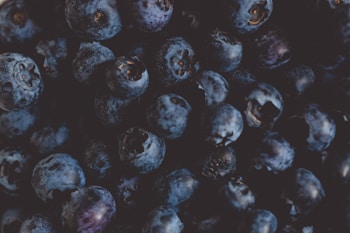
黑莓
The Chinese word for blackberry is 黑莓, pronounced as 'hēi méi'. It is used just like how the English word 'blackberry' is used, to refer to the fruit, or to the brand of smartphone and related technology products.
- 1
- 2